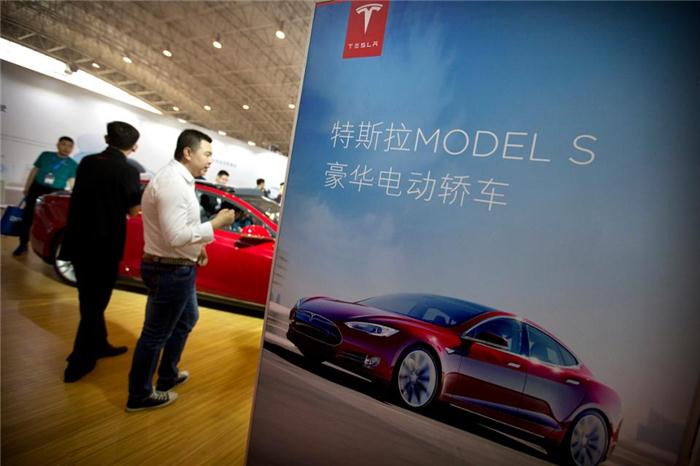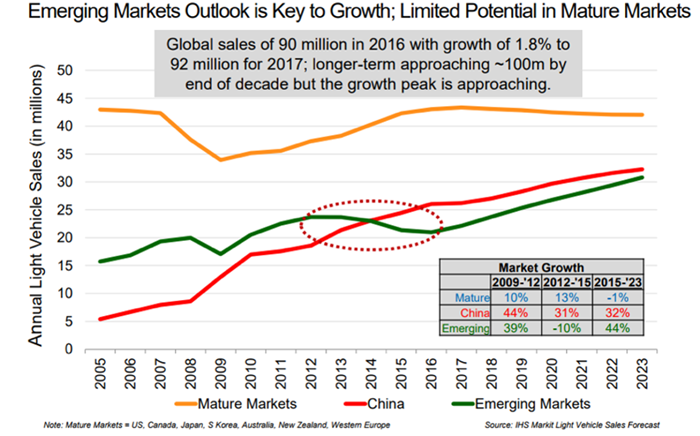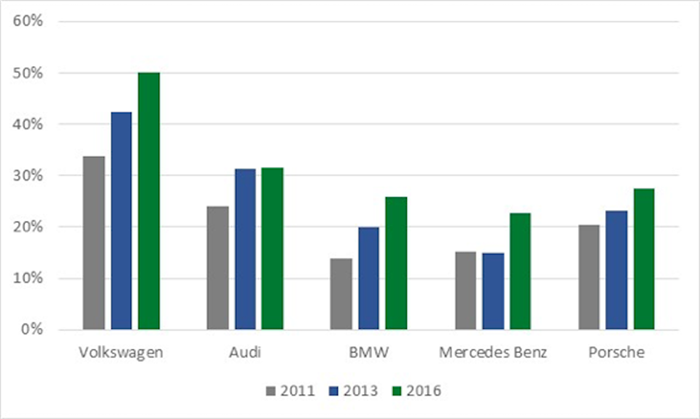According to Forbes News Network, Tesla announced on October 22 that it will manufacture cars in China and signed relevant agreements to increase production capacity and sales in the Chinese market. The signing of the construction agreement is a milestone in several respects. The Chinese government has also given Tesla more autonomy. Tesla is also the first company that has not established a joint venture company with local Chinese companies in proportion to 50:50. Tesla also received many concessions from the Chinese government to defend its intellectual property rights and vertical integration of production processes. With local production in China, the production cost of Tesla will be reduced, but the relevant details have not been disclosed, and the possibility of tax deductions and related subsidies will also exist in the future. Chinese symbolic victory Attracting Tesla is a symbolic victory for China. In order to build an environment-friendly society, China intends to create the world's largest electric vehicle market. The 19th National Congress just concluded proved once again the determination of the Chinese government. However, further, Tesla's need for China may be greater than China's need for Tesla. According to the light vehicle sales forecast chart released by IHS Markit, China is a "matchable spot" for global car companies. China surpassed the United States in 2009 to become the world's largest automotive market. The sales of cars in Western countries are forecast to decline, and emerging markets will lead the growth of the global automotive market. With the recent changes in the government's environmental protection policy, China has gradually become a big country in electric vehicles. In 2016, China accounted for 45% of the world's electric vehicle sales. China is also increasing the construction of electric vehicles charging equipment, and will also benefit Tesla and other high-end car companies. In 2016, the number of charging piles in China accounted for 44% of the global market, including 82% of fast charging piles. The demand for electric vehicles in the Chinese market has also grown faster than other global markets. Despite all the favorable conditions in the Chinese market, Tesla has not achieved much success in the Chinese market to date. The government subsidy has led to an increase in the demand for electric vehicles, of which low-end electric vehicles have a large proportion, while Teslain faces a 25% import tariff, which does not have much advantage in terms of price. In 2016, Tesla’s share of the electric vehicle market in China was only 3%. Behind other foreign high-end brands Tesla's performance in China's slightly "imperative" contrasted with other car brands. As in Western countries, cars are also a symbol of status in China, so consumers are also more inclined to buy foreign high-end brands. The proportion of foreign brands in the Chinese market reached 60%, which accounted for 7 seats among the top 8 models sold in 2016. High-end brands are also very eye-catching in the Chinese market. The sales volume of Audi, BMW, Mercedes-Benz and Porsche in the Chinese market accounted for 1/4 to 1/3 of its global sales, an increase of 10% compared to the past five years. In addition, Volkswagen’s sales in China account for nearly 50% of global sales. The performance of other foreign brands in the Chinese market also shows that if Tesla can reduce costs and prices are in line with the local market, then there will be good performance. Increased global market share competition Why is Tesla's need for China greater than China's need for Tesla? The Chinese electric vehicle market will continue to grow without Tesla. Tesla's contract with the Shanghai government is very timely and critical. With the take-off of the electric vehicle market in China, Tesla must pay attention to its performance in the Chinese market to maintain its leadership in the global electric vehicle market. Producing in China is conducive to reducing production costs and prices, which not only benefits the Chinese market but also is crucial to the global market. Finally, as in other industries, Tesla may also tap Chinese local technical talent to promote its leadership in the global market.
Conveyor Frames
Established in 1976 in China, JUXIN, are
considered as the first Conveyor and components: roller, frame, pulley
manufacturer in Hengshui, China. The rapid growth of the business in
China soon created the need for a distribution depot, therefore in 2007 a
new branch was put in place in Tianjin City The modern day JUXIN now
manufactures conveyor products to suit all supplies of mining, steel
plant, cement plant, quarry, crushing and screening equipment. Our
expertise and knowledge allows us to deliver fully on our promises of
providing quick answers to your enquiries, rapid service, high quality
products and above all, we are fully committed to be the best at what we
do Service Agents are also located in: UK, South Africa, Kenya,
Indonesia, Thailand, Kazakhstan All products are underpinned by
unmatched customer service and prompt, reliable delivery. Our internal
quality systems are designed to ensure that all orders are handled
quickly and are manufactured to the ultimate quality standards. Several
checking processes are in place prior to orders being released from the
factory. Many tightly controlled inspections occur during the production
processed.
Conveyor Frames,Conveyor Idler Frames,Belt Conveyor Frames,Belt Conveyor Bracket Frames Hebei Juxin Conveyor Engineering Co., Ltd , https://www.juxinconveyor.com
![]()

![]()

![]()